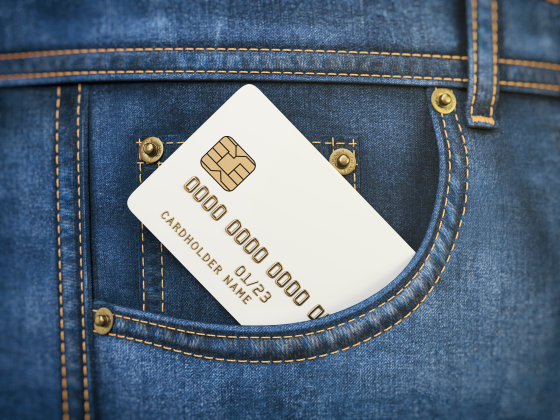'Mobile payments are safer than credit cards', how can we spread mobile payments?

Although payment apps such as Apple Pay and Google Pay are more secure than using credit cards, the reality is that there are still many situations where credit cards are used. Researchers at the University of Michigan and Carnegie Mellon University have conducted experiments on how to spread mobile payments using apps, and found that it is possible to promote mobile payments by using ' Nudge' . It turned out.
From Intent to Action: Nudging Users Towards Secure Mobile Payments
(PDF file)
Simple'nudges' can encourage people to use a safer payment method
https://techxplore.com/news/2020-08-simple-nudges-people-safer-payment.html
Nudge is a concept of behavioral economics, and is a method of voluntarily encouraging favorable behavior without forcing people. For example, 'display' recommended 'only on a specific menu of a restaurant' and 'display footprints on the floor in front of the cash register so that consumers can stand there' can be mentioned as nudge.
You can read more about what Nudge theory is from the following articles.
What you need to understand to identify the website design 'dark pattern' that tricks you-GIGAZINE

Therefore, the researchers conducted experiments on two types of nudge, 'education' and 'planning,' with 400 subjects.
First, one group of subjects was given teaching materials focused on the horror of credit card fraud, people's awareness of credit card fraud, and the security of mobile payments. This material also explained how to use mobile payments with the goal of giving people peace of mind. These are said to be based on the 'protective motivation theory' in psychology.
'People are motivated to adopt solutions based on'assumed threats'and'proposed solutions',' said Peter Story, a member of CyLab at Carnegie Mellon University. Think about it. We provided both with an educational nudge. '
Another group, on the other hand, received similar materials but was also required to form their own 'implementation intent.' In other words, we asked the subjects in this group to imagine where mobile payments would be used and where they would actually use mobile payments. In other words, we asked the subjects to have a concrete and mental rehearsal about the use of mobile payments.

The remaining group was a control group and was not given any particular nudge.
As a result of the experiment, 18% of the first group did not use mobile payment before the experiment, but after the experiment they started to use mobile payment. And in the case of the second group, 27%, more than the first group, now use mobile payments. On the other hand, in the case of the control group, this ratio was 9%.
Based on the results of this research, researchers believe that in order to spread mobile payments, it is important to provide people with information on the security of mobile payments and at the same time increase the number of places where mobile payments can be made. ..
'If credit card companies and mobile payment operators publish data showing that mobile payments prevent credit card fraud, they can convince people that it's safe. In experiments, mobile payments are better than credit cards. Some people didn't believe it at first when they showed it was safe, 'Story commented.

Related Posts:
in Note, Posted by darkhorse_log







